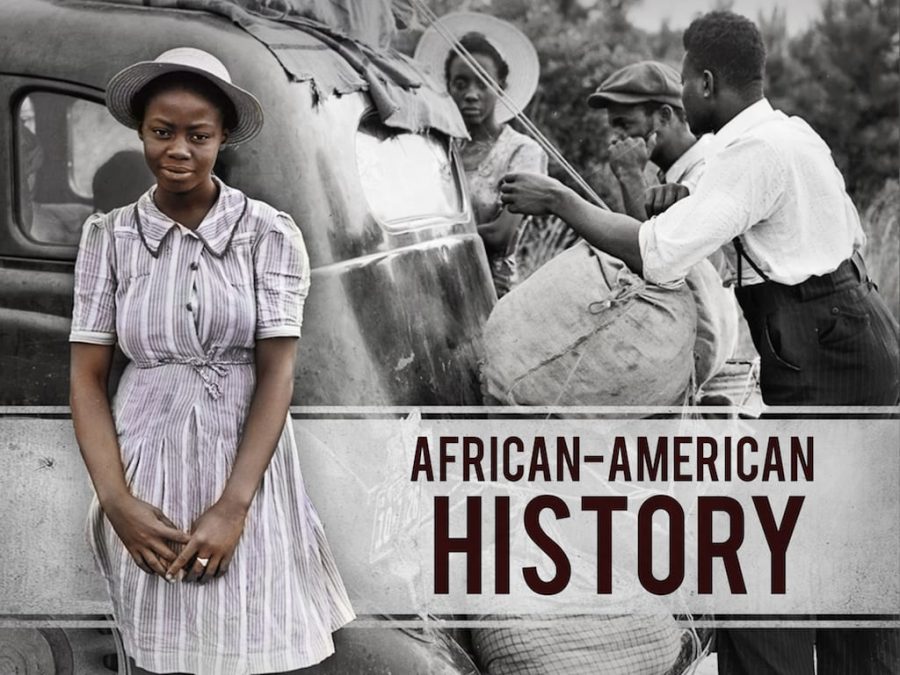College Board’s courses expand to African American history
College Board invites a new course of AP learning: African American history. The course will provide a board with events such as the transatlantic slave trade and the civil rights movement. So far, 60 high schools have obtained the course to teach students.
October 6, 2022
The College Board approves the history of race in the United States with a new Advanced Placement (AP) course and exam on African American studies that nearly 60 high schools will teach this fall. The multidisciplinary course will address civil rights, politics, literature, the arts and geography. Establishing an AP African American history class allows high school students to understand the structural racism and white supremacy affecting societies worldwide, specifically in America. Students globally should recognize African American history and learn about the obstacles African Americans experienced after concealing their stories for centuries.
The board of education successfully modified the curriculum taught to students, especially within history courses. Whitewashing history hides the truth of the atrocities that Black, Indigenous and people of color have experienced. Instead, educators paint history in a way where racism existed in the past with the civil rights movement ending racial discrimination.
“In Texas, the Reconstruction Era is kind of skipped over and it’s looked at through the lens of being a failure. But in my own study of Reconstruction, political strength came out of that era for African Americans, taking agency over not only their bodies but what they were going to do, and the development of Black towns here in Texas, Oklahoma and Louisiana. I’m really looking forward to teaching that to give it a different spin from what our students have been told about it,” Texas high school teacher Nelva Williamson said.
The first African American studies course for high school students will contain rigorous aspects to allow students to receive credit and advanced placement at different colleges across the country. The plan for an AP course acknowledges the field of African American studies after avoiding the topic in schools for centuries. The College Board refused to release a sample syllabus or to name the 60 schools providing this course. The subject demonstrates how African American studies became a course at the college level, the strength of early African kingdoms and cultures, the transatlantic slave trade, the lives of enslaved people and how they resisted white supremacists, moving toward the Harlem Renaissance, Black pride, the civil rights movement, Black feminism and intersectionality.
“I think it would be a fantastic addition and a great wealth of material that could come from this course. The African American studies would include not just history and politics but also cultural contributions and literary studies. As a history teacher, it just sounds like an amazing class to both the students and potential teachers but it will require somebody who has a really broad area of knowledge for this,” AP government teacher Carolyn Galloway said.
Critics may argue that granting students the opportunity of an African American course would appear unfair if the College Board does not offer a White American course. However, students primarily learn about White American and European history as compared to other races and ethnicities. Europeans have taken the spotlight in history for centuries in education. College Board also currently offers an AP European History course that focuses on the cultural, economic, political, and social developments that have shaped Europe.
African American history should exist in every child’s education so they can learn about the challenges African Americans faced and still face. African American or not, history impacts everyone with the hardships that still last today. Knowing about African American history will teach those of non-African descent to understand current issues in Black America. The course provides context by explaining how African Americans made a change in today’s society and a deeper understanding of the issues black people still encounter in this country.
The course comes at a precarious time for teaching history; Black history in particular. This course could clash with the political mood and even with laws in multiple states. Across the country this year, 36 states have introduced 137 bills seeking to restrict teaching mainly on race but also on gender and history, up from 22 states and 54 bills last year, according to free-speech group PEN America. Learning about the race of Black people and their culture will help children in the future keep an open mind about the obstacles African Americans faced. Republican politicians created a piñata out of critical race theory, an academic theory that examines the way racism lies in institutions. However, it became a vaguely defined buzzword among parents and political activists who argue that teachers do not share the same values as their students.







